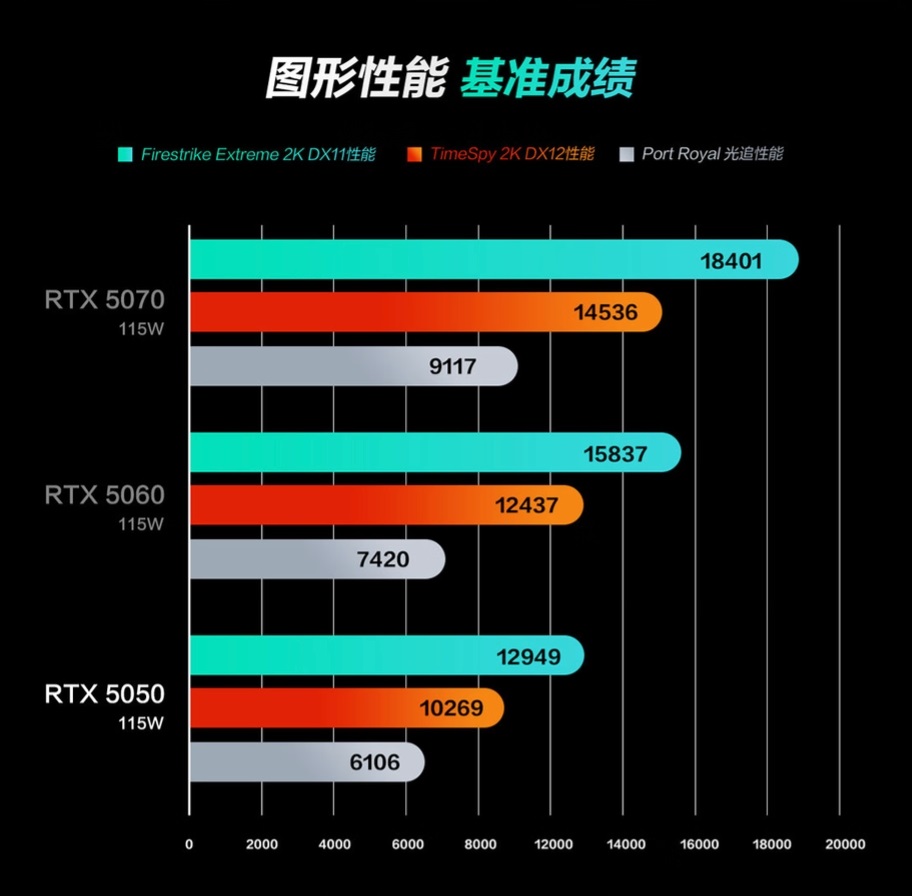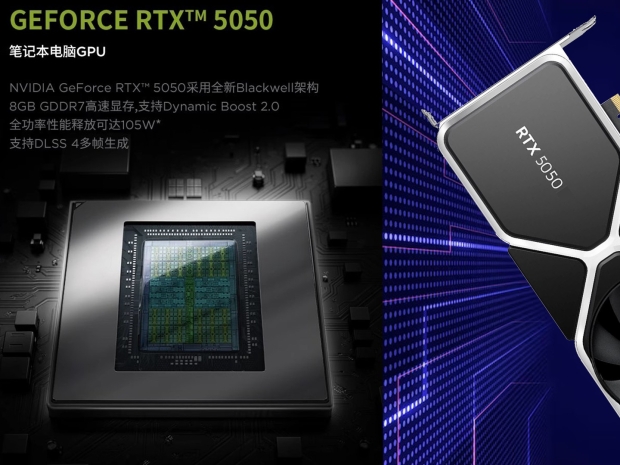Based on the GB207 die, the RTX 5050 features 2,560 CUDA cores and 8 GB of GDDR7 memory on a 128-bit interface. The GPU runs at a 115W TDP, matching the power profile of the RTX 5060 mobile. Bandwidth also lands at 384 GB/s, which puts it in the same bracket as its higher-end sibling.
First out of the gate with RTX 5050 laptops are Mechrevo and ASUS. ASUS's TianXuan 6 edition laptop pairs the chip with a Core i7 14650HX processor and starts at 6,559 yuan (around €845). That puts it just €28 to 37 cheaper than comparable RTX 5060 offerings so the price gap is about as narrow as the performance difference.
Synthetic benchmarks suggest modest gains. In Time Spy, the RTX 5050 scores 10,269 which is around nine per cent better than the RTX 4050. It is roughly 18-19 per cent slower than the RTX 5060 across tests like Firestrike Extreme and Port Royal but it does show a 27 per cent uplift over the RTX 4050 in the ray tracing-heavy Port Royal.
The desktop version of the RTX 5050 is tipped to arrive on 1 July which will likely cap off this initial wave of RTX 50 GPUs before Nvidia rolls out its inevitable “Super” refreshes.





